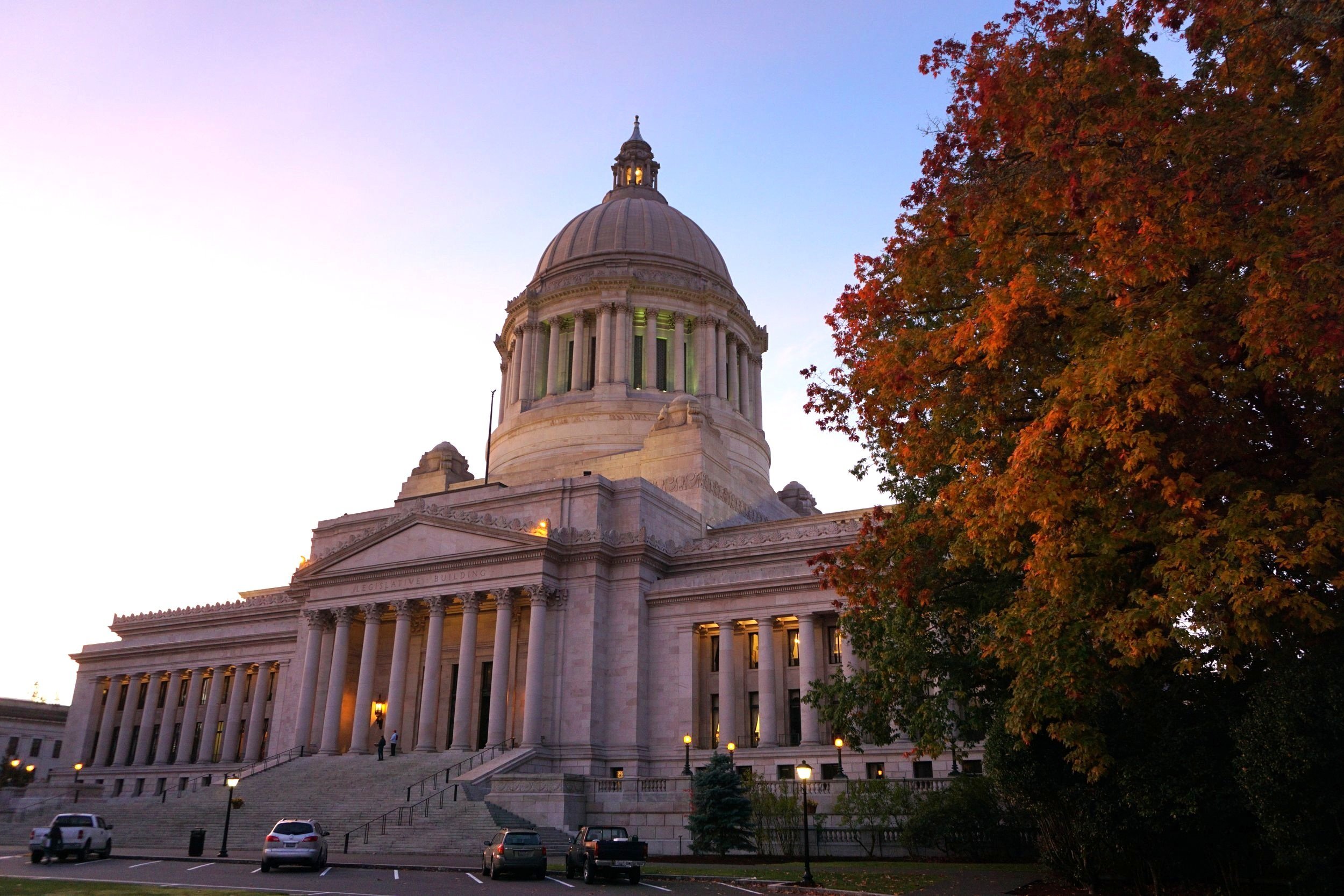
2020 Legislative Priorities
Washington Coalition for Open Government has established the following priorities for legislative action during the 2020 session. The Coalition encourages its members and concerned citizens throughout Washington to contact members of the Legislature and encourage their support for these priorities.
Treat Legislative Records the Same as Other Public Records.
The people have a right to know who is seeking to influence our laws. The records of our local governing bodies are open to public inspection, and so should be the records of state legislators and the state Legislature. State legislative records should be subject to the Public Records Act like those of every local legislative body in the state, with appropriate exemptions that are in the public interest.
Stop Abuse of Agency Notice to Parties Named in Records.
Many agencies delay release of records by abusing the ability to notify persons named in a record. The amount of time allowed for such parties to file for an injunction to block release should be limited to two weeks or less. Agencies should be required to identify the exemption under which the record could be withheld when providing notice. Requesters who successfully defend against a lawsuit filed by a third party to block release of records should be able to recover their attorney fees and court costs from that party, or from the agency if the agency acted in bad faith by inviting the lawsuit.
Public Employee Birthdates Must Remain Public.
We oppose making public employee birthdates exempt from disclosure under the Public Records Act. Many people have the same or similar names, and the only way to tell them apart is to know their birthdate. This is important when comparing records across databases, such as when checking to see if public employees have criminal records or have been previously fired for inappropriate behavior. A birthdate by itself can’t be used for identity theft, and they have traditionally been public information.
Advisory Committee Meetings Must be Open to the Public.
Public agencies often create boards, committees, task forces, or other groups to analyze policy alternatives and make recommendations. Too often these advisory groups meet outside the public eye, so people can’t see what options were considered and understand why some were excluded. All this work should be open to the public, with meeting times and places announced in advance. Let’s stop developing policies in secret.
The following additional items of concern to open government advocates will be also be supported:
Require all special purpose districts to hold elections using the same schedule and mechanism as other jurisdictions, and to be fully subject to the Open Public Meetings Act.
Clarify that agencies cannot escape PRA penalties by leaving a request open indefinitely, and that litigation to force release of records can start as soon as access to a record is denied even if the request is not “closed.”
Provide voluntary alternative dispute resolution for PRA and OPMA cases that is faster and less expensive than superior court, and does not impair plaintiff’s ability to choose to file a suit or receive penalties if they prevail.
Require exemptions to the PRA to be contained within or referenced from RCW 42.56.
Create an exemption in the PRA for audio and video recordings of lawfully-closed meetings.
Create a private right of action under the PRA for improper destruction of public records.
Prevent agencies from initiating litigation against public records requesters such as for declaratory judgment.
Amend the state constitution to eliminate any notion of “Executive Privilege” under the PRA.
Restore the original intent of the attorney-client communications exemption in the PRA.
Oppose weakening of the PRA through changes in process or expansion of exemptions.
Require an opportunity for public comment before final action is taken under the OPMA.
Officials who violate the OPMA should be penalized even without proof they knew the meeting was illegal.
Clarify in the OPMA that serial and virtual meetings, including those conducted through electronic media or third parties, are illegal.
Prohibit use of pseudonyms when voting on motions such as selecting employees to hire or appointees to public office, boards, or commissions.
Prohibit governing boards from declaring themselves to be continuously in all-day public meetings.
